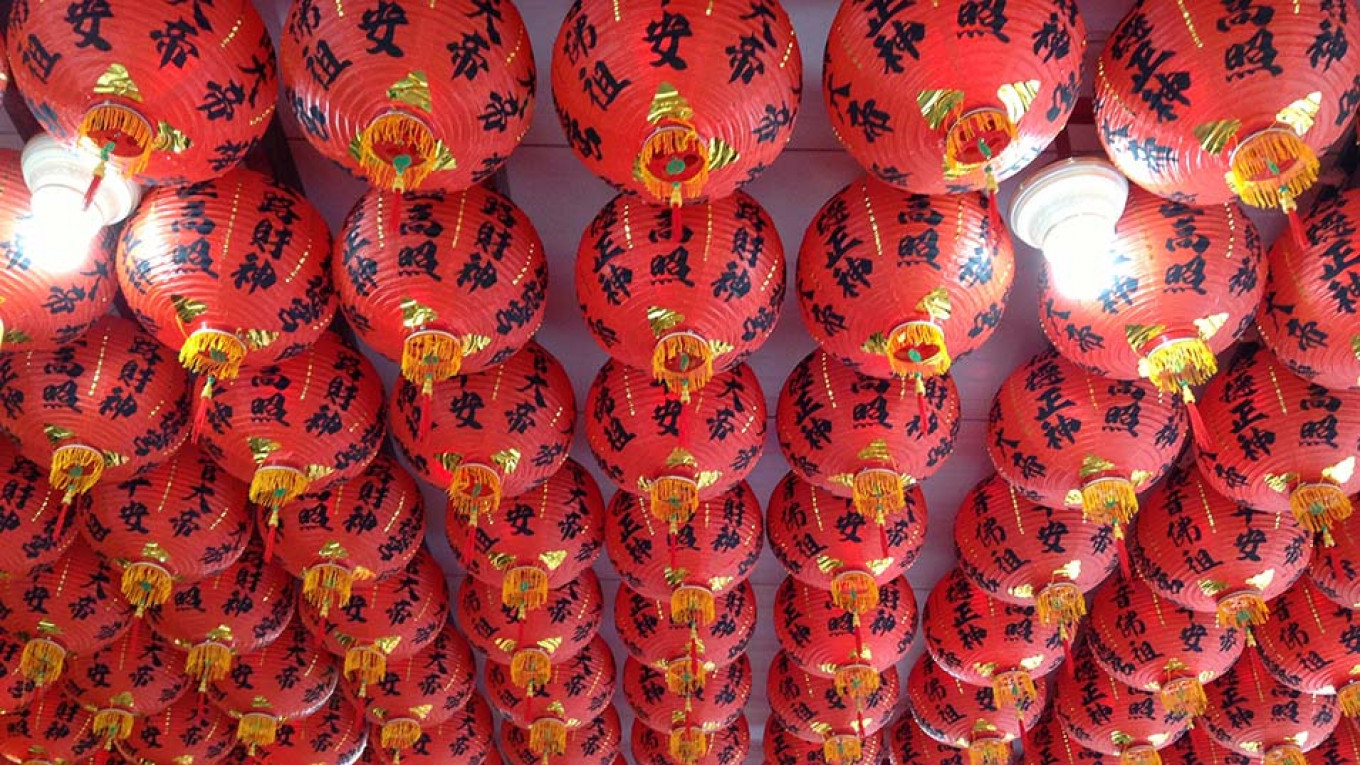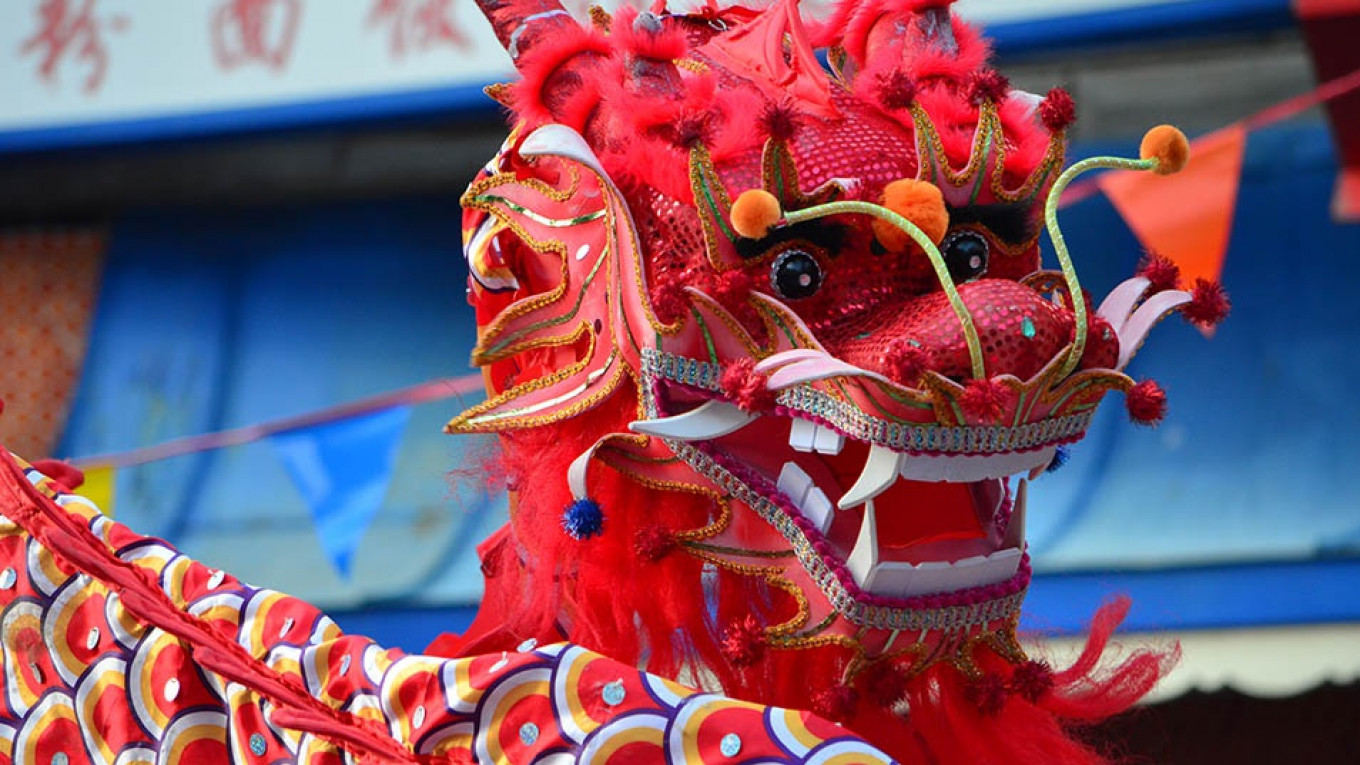If you braved the cold to browse Moscow’s Christmas markets, chances are that aside from the requisite matryoshkas and Grandfather Frosts adorning almost every stall, you noticed the presence of one particular animal: the pig. Pigs, you probably thought, are not particularly Christmasy. So why were they so prominent? Simple: 2019 is the Chinese Year of the Pig.
Russia gets a third New Year?
Russia celebrates two New Years based on the Julian and Gregorian calendars: New Year (Jan. 1) and Old New Year (Jan. 14). And then there is one more -- Chinese New Year, which starts between the end of January and mid-February.
Stanislav Lisichenko is the founder of the Moscow restaurant chain Chinese News, which has four locations across the city. Since he opened his first restaurant, Lisichenko told The Moscow Times that Chinese New Year has “definitely become more popular” among Russians of all generations. He added that Moscow is late to the party, since the regions closer to China have been celebrated for years.
Olga Chernova, curator of The State Museum of Oriental Art’s current exhibition The Eastern Calendar, agrees. Chinese New Year has become “more popular” in Russia as the country has become more open, she told The Moscow Times. In contrast to Lisichenko, Chernova believes that it is mainly younger people who are embracing the Chinese tradition, while people from what she dubs ‘the Soviet generation’ are “not so open to something new.” Fashion, Chernova added, is one of the ways that Russians mark the Lunar New Year. “In Russia it is traditional to choose clothing based on the [Chinese] animal symbol’, she said. "This is the year of the Yellow Wooden Pig, so women might wear a yellow dress or yellow jewelry.”
Native Muscovite Maria Maximova, currently a Ph.D. candidate at the University of Loughborough, has a more ambivalent view. Russian people, she said, “are obsessed with Chinese New Year symbols” and that “everyone knows it is the Year of the Pig.” For some people this can even determine their culinary decisions: “People think ‘Oh, it’s the Year of the Pig so I shouldn’t eat pork for my New Year’s Dinner’.”
She doubted, however, that the festival will really gain traction in Russia. “I guess that people are so tired of celebrating New New Year and Old New Year […] that Chinese New Year is not a big thing.”

From Geopolitics to culture
On New Year’s Eve, President Putin wished Chinese President Xi Jinping and the Chinese people “happiness and prosperity” and commended the countries’ unprecedented partnership, according to Chinese state news service Xinhua.
Lisichenko sees a clear connection between politics and everyday culture. “More and more people are getting involved in relations with China,” Lisichenko said. Using the term ‘strategic partnership’ – the Russian government’s buzzword for Sino-Russian relations, he said that these developing bilateral relations are spurring an interest in Chinese culture among businessmen and regular citizens.
Chernova also stressed the importance of geography, telling The Moscow Times that Russia’s position at the nexus of East and West means that there has been “continuous interest” in Asian culture.
Young, Chinese, and Living in Moscow
Tianshuo Li, a Chinese M.A .student at the Higher School of Economics, told The Moscow Times that in general, Russia is open to Chinese people and culture. “It’s quite nice being a Chinese student here. People tend to be nice to you when they know you are from China. Some salespeople can sometimes speak one or two Chinese sentences.”
Visitors from London or New York find it odd that Moscow has no Chinatown. For Tianshuo and other Chinese students, this is inconvenient. “It’s a bit complicated to get [Chinese] ingredients because there is no centralized Chinese or Asian market in the city center,” she said. “We can only get stuff from a market in a very southern part of the city around Lyublino.’”
In any case, Tianshuo won’t be cooking this week in Moscow; she’ll be at home. “Chinese New Year is a precious opportunity to review traditional family values and strengthen identity.”
新年快乐 (Xīnnián kuàilè) – Happy New Year from The Moscow Times!
A Message from The Moscow Times:
Dear readers,
We are facing unprecedented challenges. Russia's Prosecutor General's Office has designated The Moscow Times as an "undesirable" organization, criminalizing our work and putting our staff at risk of prosecution. This follows our earlier unjust labeling as a "foreign agent."
These actions are direct attempts to silence independent journalism in Russia. The authorities claim our work "discredits the decisions of the Russian leadership." We see things differently: we strive to provide accurate, unbiased reporting on Russia.
We, the journalists of The Moscow Times, refuse to be silenced. But to continue our work, we need your help.
Your support, no matter how small, makes a world of difference. If you can, please support us monthly starting from just $2. It's quick to set up, and every contribution makes a significant impact.
By supporting The Moscow Times, you're defending open, independent journalism in the face of repression. Thank you for standing with us.
Remind me later.







